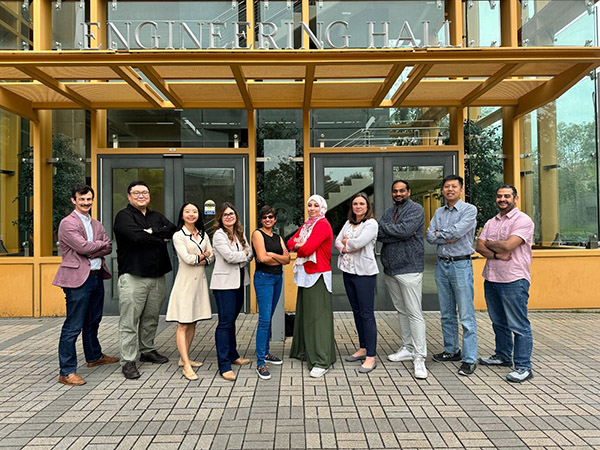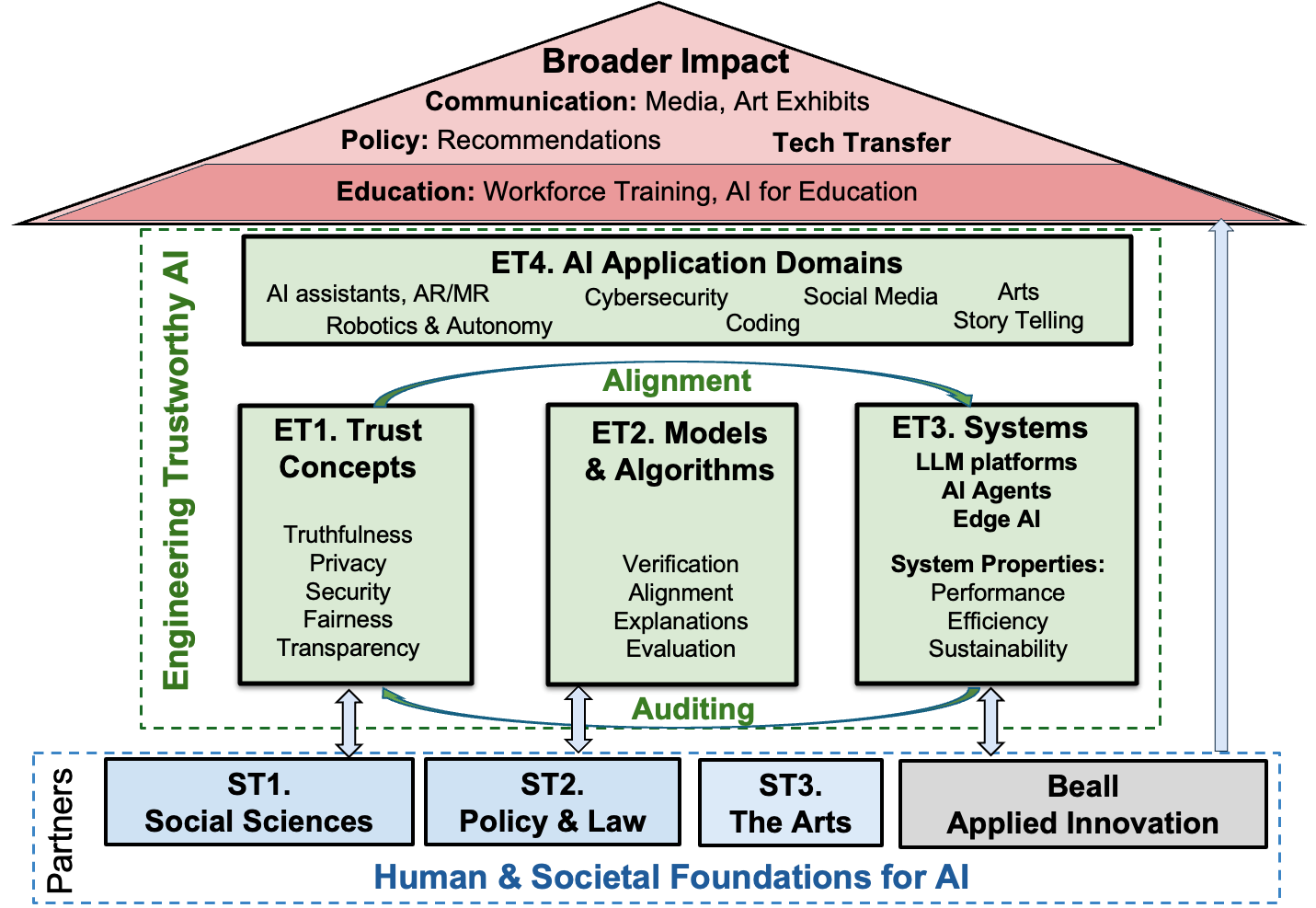Samueli School's Engineering+ Society Institute to Focus on AI

June 4, 2025 - Samueli School Dean Magnus Egerstedt announced that the Engineering+ Society Institute will focus on “Engineering AI for Society” with Athina Markopoulou as the institute’s inaugural director.
Markopoulou is a professor of electrical engineering and computer science and the director of the ProperData Center. She argues that Artificial Intelligence (AI) is one of the grand challenges of our time. On one hand, AI has the potential to transform work, health care, education, and quality of life. It can democratize knowledge by making it accessible and lowering the barrier for technical skills. It can advance engineering disciplines, organize information, increase efficiency and productivity, and propel economic growth. On the other hand, there are growing concerns about potential societal harms including fraud and misinformation, security and privacy, safety of AI-driven systems, equity and fairness. People are also concerned about the impact of AI on the workforce, its energy demands, as well as longer-term existential threats.
“We are currently at a critical point in the development and deployment of AI technologies, and the outcome is not predetermined: it may lead to a better or to a dystopian future,” Markopoulou explained. “Much depends on the technical, policy, and business decisions made within the next few years. The mission of the institute is to contribute toward engineering AI and its applications so as to align with societal values.”
The Engineering+ Society Institute: Engineering AI for Society will use a socio-technical approach and bring together a core engineering and computer science team with strategic partners from other disciplines. The core team includes engineering faculty members Yasser Shoukry, Yanning Shen, Hyoukjun Kwon, Salma Elmalaki, Alexandra Voloshina, Zhou Li and Aparna Chandramowlishwaran, as well as computer science faculty Sameer Singh. Strategic partners include UCI School of Social Sciences Dean Bill Maurer, Beall Center for Art & Technology Director Jesse Colin Jackson, Beall Applied Innovation’s Errol Arkilic (chief executive) and Stuart Matthews (AI strategist and innovation), and Logic and Philosophy Department Chair James Owen Weatherall.
This is the second of three interdisciplinary institutes outlined in the Samueli School’s 2030 strategic plan – Engineering+ Health, Engineering+ Environment and Engineering+ Society. The Engineering+ Health Institute launched in March 2025. The institutes are funded as part of a $50 million gift from Susan and Henry Samueli.
Egerstedt stresses that E+ is an outward and forward-looking concept. “It acknowledges that although engineering is at the center of the big, impactful research questions we are currently facing, we must go beyond historical, disciplinary boundaries and adopt a deeply collaborative approach to be able to address them.”

With approximately $2.5 million over five years, the institute will conduct research in two thrust areas and implement several broader impact activities. The engineering thrust involves investigating trustworthy AI concepts, models and algorithms, systems and application domains. The engineering-society thrust will interface with partners in social sciences and humanities, policy and law, AI and the arts. The institute’s broader impact activities will include educational programs, policy recommendations, public communication and technology transfer. Markopoulou believes that UCI can make a marked impact by creating a hub of excellence. The Samueli School of Engineering has deep expertise in this area, so this institute will unify and propel that research.
Leading this institute, Markopoulou will build on the momentum and experience she gained from establishing ProperData, a five-year, $10 million NSF SATC Frontiers project, where she worked on data privacy, using a joint technical and policy approach and led a large interdisciplinary group. She explains that she initially approached AI through the lens of data privacy – worrying about personal data used to train AI models, as well using modern LLM-based services such as chatGPT and AI agents on browsers or mobile devices that collect and infer data.
“I soon realized that there are many significant societal concerns beyond privacy, including security, safety, truthfulness and more, which need to be addressed to harness AI and steer it toward societal good,” said Markopoulou. “Getting AI right is arguably one of the defining challenges of our time, both in terms of intellectual and technical merit and in terms of societal impact. It is also one of those grand challenges that require interdisciplinary large teams, which is something I enjoy building.”
Her goal for the institute is to build collaboration and agility into both its structure and culture. “We want to make this institute ‘more than the sum of its parts,’ to borrow a quote from NSF,” she said. The institute will prioritize collaborative and interdisciplinary projects before single PI projects and will allow the team and activities to evolve organically. “Five years is a long time in the field of AI,” Markopoulou said. “To put this into perspective, consider that the ChatGPT breakthrough was less than three years ago, and artificial general intelligence – or even superintelligence – are projected to arrive within the next three to six years!”
– Lori Brandt
